A Year of Change
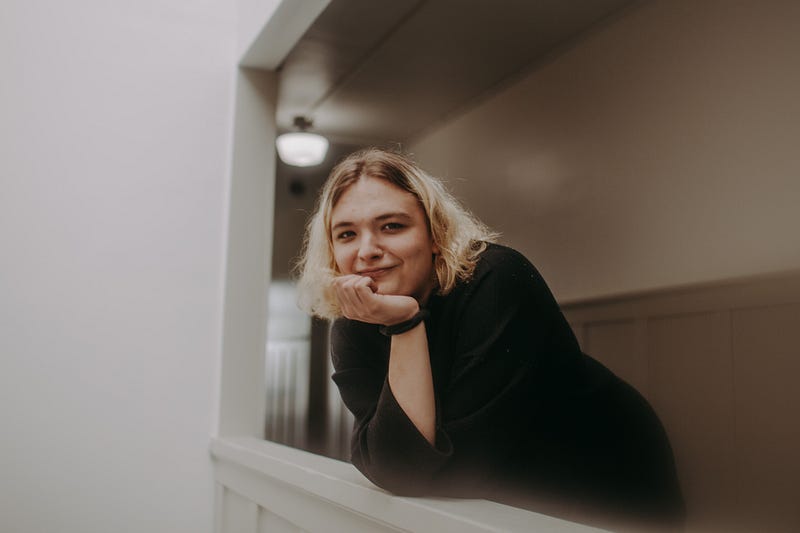
An artist’s journey through COVID-19, music and gender.
Story by Finn Calvert | Content warning: suicide, discrimination, sexual assault
Emma Croy, known as Emma Et Cetera, wore a scarf over her head and a bright pink top. Her oversized sunglasses gave the impression of a stylish flight attendant who couldn’t be bothered by your request for a snack. After plugging in various cords and extensions that look like they could be out of a sci-fi film, her music begins slowly rising, much to the socially distanced crowd’s delight.
“You know how it’s more sexy to undress in the presence of someone?” Croy said. “Like it’s one more layer of the buildup. The edging process of the entire show is like that. It doesn’t give you the sound right away.”
It had been over a year since Croy last played a live show, but here she was with an unapologetic sound and an unapologetic acceptance of herself.
Like many artists, Croy had to adapt to the COVID-19 pandemic. Stuck in her small, one-bedroom apartment she created an “online house party,” Auralerotica, where up-and-coming artists can drink, mingle and perform live on Twitch.
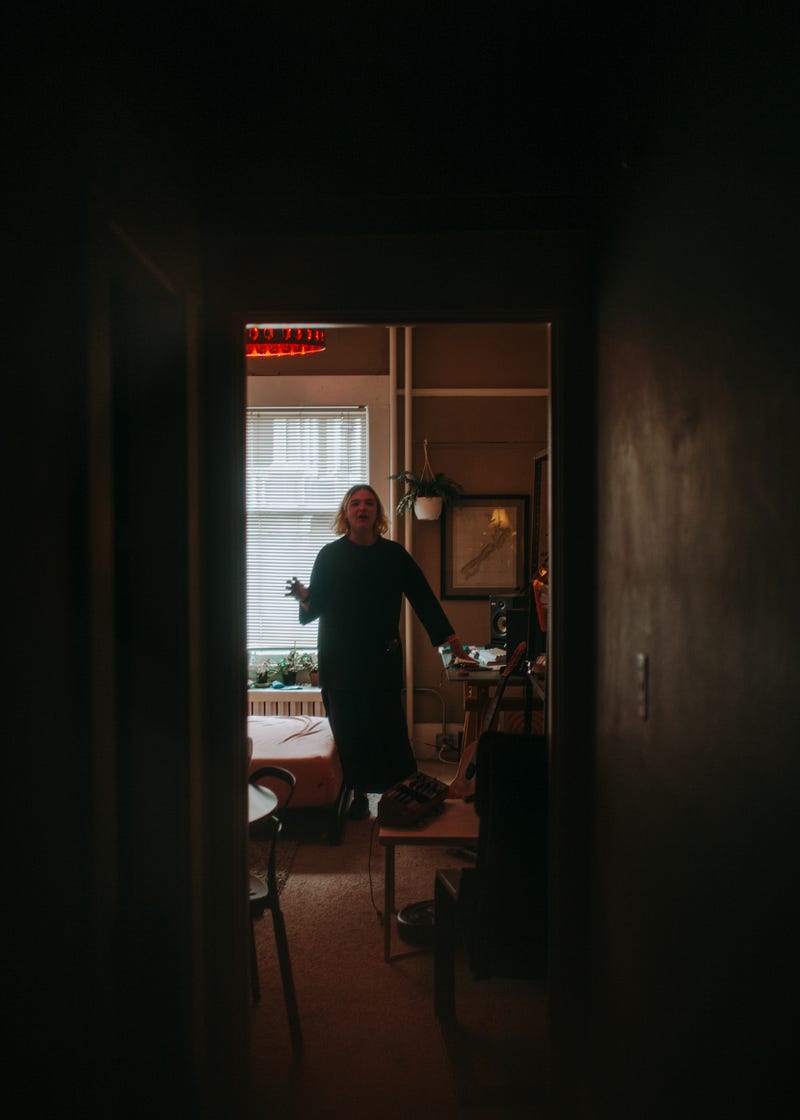
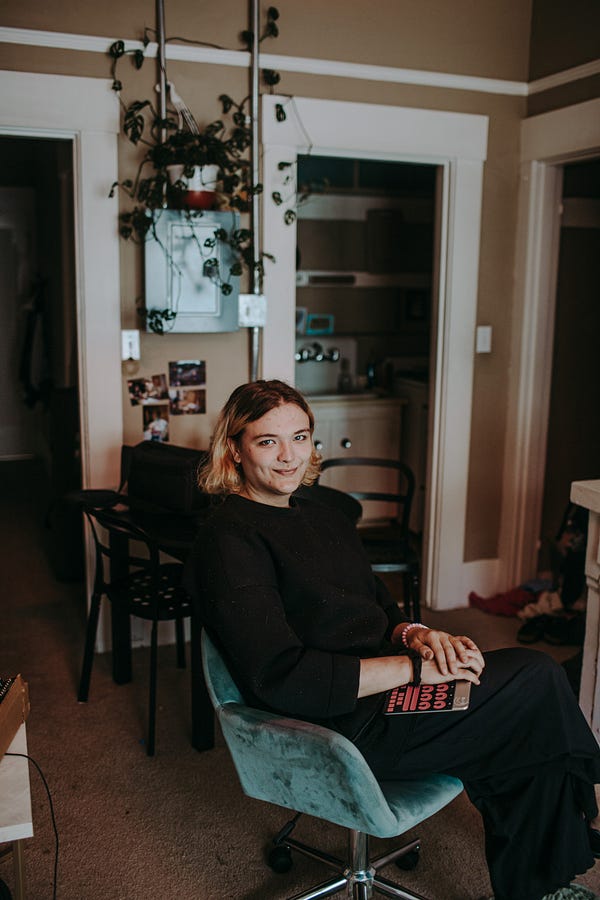
“All I wanted at that time was to get invited to something exclusive,” Croy said. “I was trying to think of how to make something that seems exclusive but actually isn’t at all.”
In response, Croy enlisted the help of friends to create a website with a puzzle. If this puzzle was solved, a Zoom code was revealed that allowed the respondent to join a VIP Zoom session. Here, the artists, dressed to the nines, could react to each other’s sets and party like pre-COVID-19 times.
“I’ve missed live shows and live performances a lot,” said Clay Cantrell, known as Iggy Graceful, an artist who played at the first Auralerotica. “To come together virtually for a show that people were actually excited and hyped about was super awesome.”
The various artists, whose sets were as wild as the promotional graphics for the show, went all out for their allotted times. Animations, smartly edited videos and preplanned skits made the experience feel more like an incredibly fun fever dream than a Twitch stream.
“I was like, ‘Wow, Zoom shows can actually be cool instead of a lame substitute for live music,’” Cantrell said. “They allow you to do things that you couldn’t with a live show.”

For Croy, it was all about fun.
When Croy talks about music, her face brightens and her eyes wander the room as if she can see every note.
Between bong rips and sips of espresso, the local Bellingham, Washington electronic artist can paint a picture of the sounds she creates with a sophistication that seems almost scholarly.
But that doesn’t mean the last year has been all peaches and roses. One of Croy’s main influences was the electronic pop artist and producer SOPHIE. On Jan. 30, 2021, the artist suddenly and tragically passed away at the age of 34.
As Croy read a diary entry from that day, her voice began to crack.
“It’s pretty scary to imagine the future for yourself as a trans girl. Like really scary, and I didn’t want to look at it for 20 years,” Croy read. “It’s so sad. I feel guilty, like I’m over-identifying with her, but it’s hard to process and there’s just not that many elders to look up to.”
SOPHIE was not only a major influence on her music, but also served as a transgender role model, Croy said.
“When I was growing up, it was definitely a lot easier to find jokes about how trans women killed themselves before 35 than it was to find someone who was 40 who was trans,” Croy recalled.
Tears began to fall down her face.
“That’s really awful, you know?” Croy said. “It’s hard enough to find someone who’s living out, let alone someone who’s living out and doing something that honest.”

Croy once again looked off but this time her brow was furrowed, deep in thought.
“I just want to make sure that as you’re writing this you’re aware that I’m aware of my privilege,” Croy said.
In recent years, the oppression of trans people in American society received increased media attention. That being said, the nature of this coverage often overlooks the multifaceted layers of this discrimination and denial of rights.
A study found that trans people are almost 4 times as likely to have a yearly household income under $10,000 than the average American.
According to a survey, 41% of trans people reported attempting suicide compared to 1.6% of the general population. These rates rose when individuals faced discrimination, harassment and physical and sexual assault.
The same survey found that 53% of trans people reported facing harassment or disrespect in a public place.
These issues are compounded for trans people who are not white, especially individuals who are Black and trans.
Because of this, while Croy’s journey has been full of challenges, she makes it clear she’s grateful for what she has.
The last year has seen an abundance of growth for Croy, both in her music and in her self-acceptance.
“When I moved into this apartment, I had the urge to remove myself from society and emerge as a complete person,” Croy said.
Croy’s apartment is a classic example of Bellingham’s landlord architecture. Her bathroom has a window painted shut that could only lead to her closet. Her kitchen is shaped like a hallway. Despite the nonsensical layout, it has an inviting and homey ambiance. Plants line the shelves. Records and musical gear are scattered everywhere.
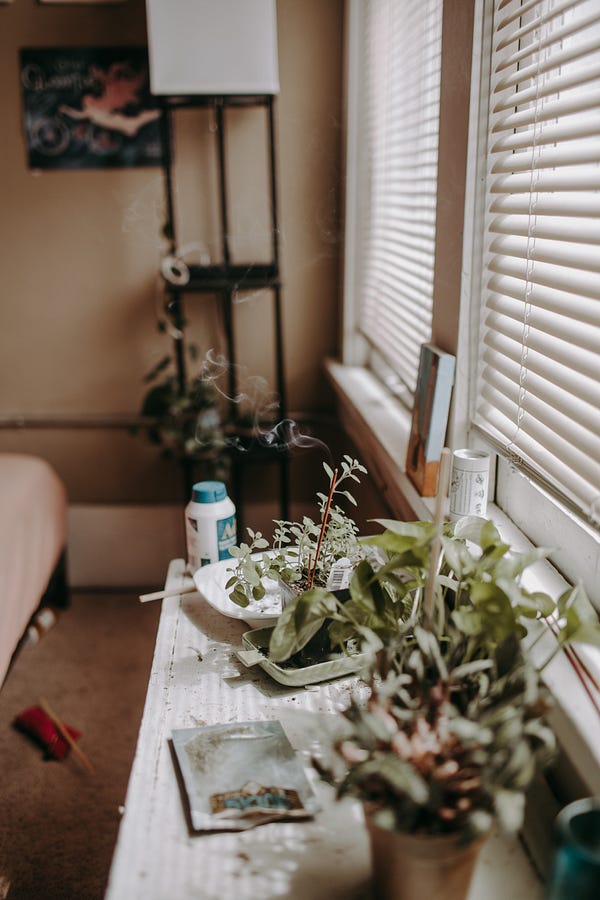
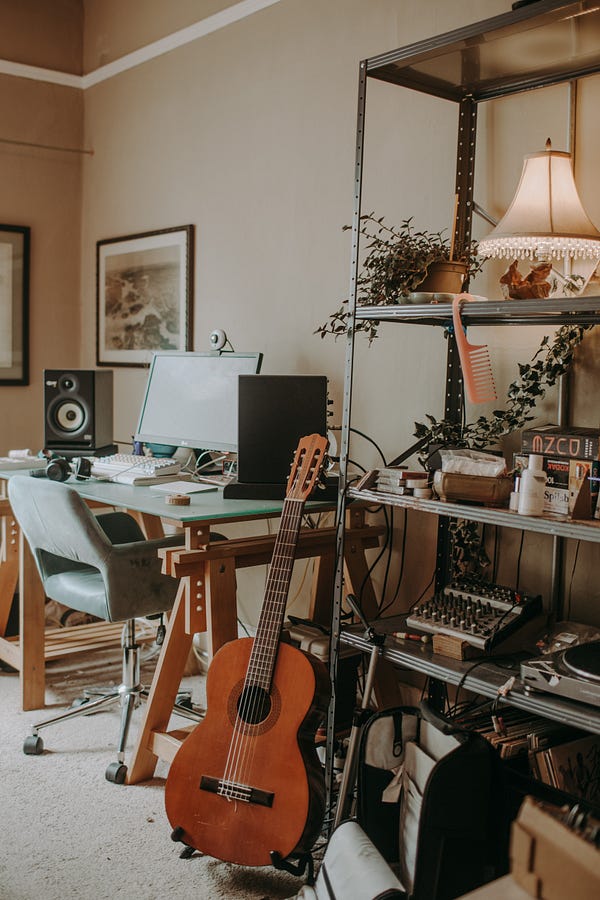
Throughout the dark winter months, music was a constant relief and avenue for self-exploration.
“It’s more than a cause-and-effect relationship, it’s a mutual equivalency, right?” Croy said. “It’s hard for me to explain how my gender journey and musical journey are tied together because they’re so intertwined.”
For Croy, her approach to both journeys changed due to her COVID-19-imposed isolation.
Struggling with the loneliness of living by herself, Croy said she began to reach out to others for support and kinship.
This appreciation for collaboration and community can be seen when she entered into a virtual battle of the bands hosted by AG Cook. Participants were randomly sorted into groups of three and assigned a song to cover. Although Croy’s group did not win, the eventual winners Me&U2 formed a collective. Soon after, Croy joined and has been collaborating with them ever since.
Her most recent EP, “I Only Have Memories of Dancing,” was released through the group. The various artists bounce ideas off each other, cross-promote other members’ material and collaborate. Me&U2 has provided a musical community that’s been hard to come by during the pandemic, Croy said.
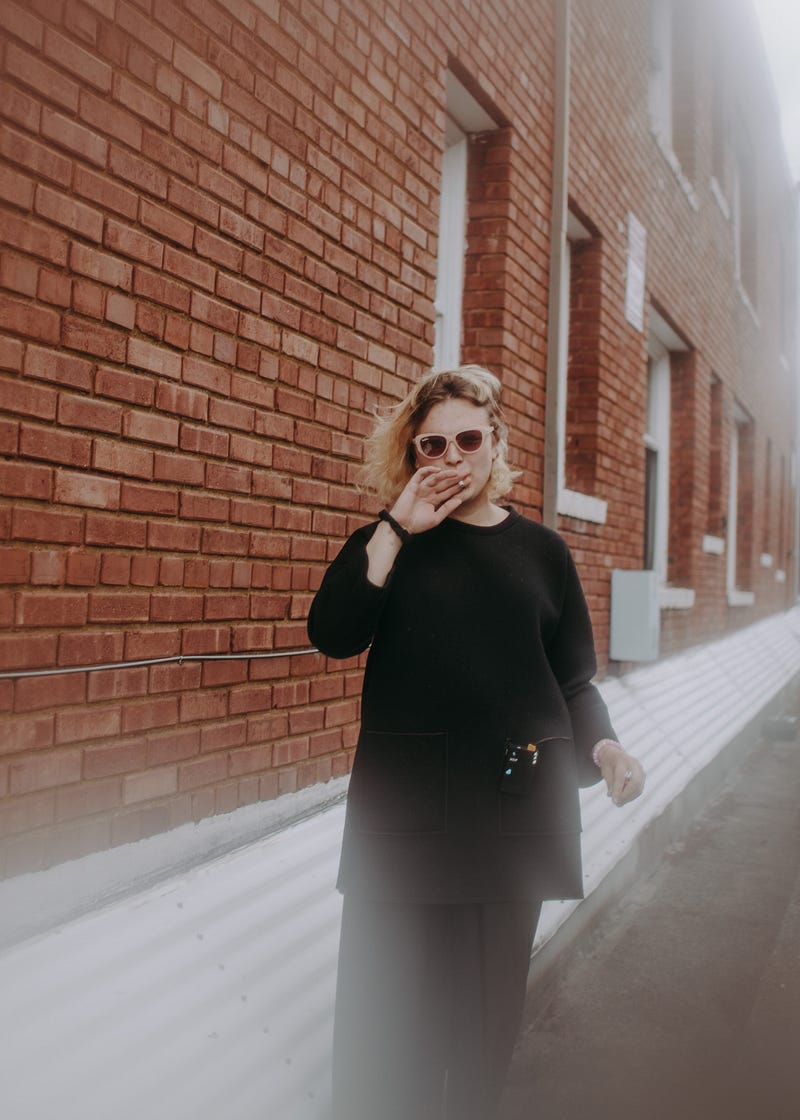
As Croy’s set began to amplify, the crowd matched the energy. For every synthetic, oftentimes AI-generated sound, whoops of joy rang out from the masked onlookers. Croy smiled out at the audience and lit a cigarette, much to the crowd’s delight.
Two young children who had previously been on the verge of sleep suddenly became full of energy. They cartwheeled, somersaulted and headbanged along with her experimental, carefully crafted art.
For many in the audience, it was likely their first time listening and dancing to live music since the start of the pandemic. You could almost taste the pent-up euphoric energy now being released.
For Croy, the experience was one to remember.
“I kind of was like, ‘Oh that’s right — that’s the energy that people will talk about that’s not there on Zoom,” Croy said. “I was completely overjoyed for the next couple days. It just felt really good. It was good to be back.”
As the music faded away and Croy’s first set back ended, she grabbed the microphone one final time. Over the cheers from the gathered crowd she began calling out names, thanking those who had helped her over the last year. Thinking back on that moment, Croy began to get choked up.
“Looking out at the people that helped me the most,” Croy said. “You don’t usually get to thank them to their face even. Which is weird. And it’s weirdly painful. Thinking back on it, it was my favorite moment of the show.”